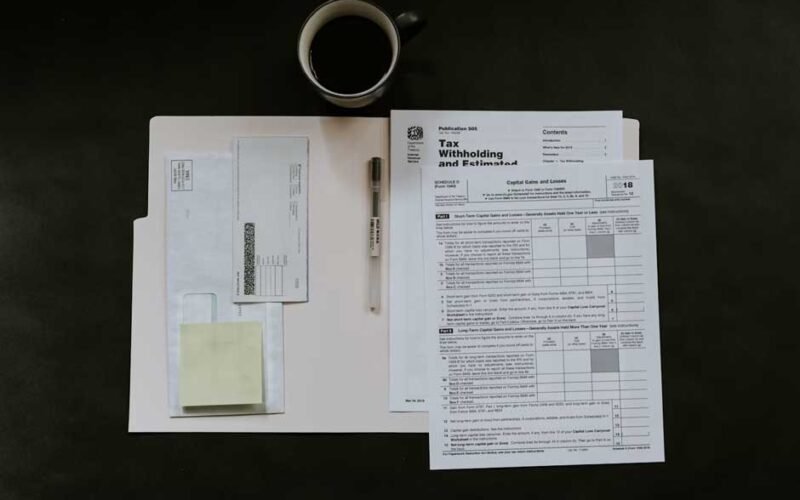Did the IRS just send you an audit letter in the mail?
Your heart skipped a beat, didn’t it? Don’t worry – you’re not alone. Every year, hundreds of thousands of Americans get that same sinking feeling in the pit of their stomachs when they see the Internal Revenue Service’s official letterhead.
Here’s the thing…
Most people panic, and think an audit automatically means they did something wrong and are about to get in serious trouble.
The reality is that 505,514 taxpayers were examined by the IRS in 2024, and the vast majority were vindicated. That’s because there’s an audit defense playbook.
Let’s dig into some specific defense strategies that actually work.
What you’ll discover:
- Why the IRS Audits Individual Taxpayers and Who Gets Targeted
- The 3 Types of IRS Audits Every Taxpayer Should Know
- Smart Audit Defense Strategies That Actually Work
- When to Get Professional Tax Help With an IRS Audit
Why the IRS Audits Individual Taxpayers and Who Gets Targeted
Ok, want to know something that might surprise you?
The IRS doesn’t pick audits out of a hat just to ruin people’s lives. They have teams of computer programmers who use advanced algorithms to screen tax returns looking for anything that deviates from “normal.”
Here’s the secret sauce: The IRS plugs your tax return into a statistical formula that flags anything outside the norm for people like you. For example, if you made $25,000 in income last year but claimed $20,000 in deductions, their computers are going to notice that. And if you had a high-end art business but reported zero profit year after year, they’re going to want to know why.
The good news is the audit rate has dropped over the past 10 years from 0.9% to just 0.25%. Your chances of getting selected are pretty slim.
Unless you’re a high-income earner. If you made over $10 million last year, the IRS is targeting a 16.5% audit rate by 2026. Yikes.
Bottom line: The more your situation strays from the norm, the more you’re likely to get flagged. The biggest red flags to the IRS are:
- Excessive deductions relative to your income
- Owning a cash-intensive business
- Reporting ongoing business losses year after year
- Substantial unreported income
- Filing a late or amended tax return
For complex situations like these, working with an experienced IRS audit defense firm can make the difference between a smooth resolution and a costly nightmare.
The 3 Types of IRS Audits Every Taxpayer Should Know
Audits come in 3 flavors: correspondence, office, and field. Knowing which kind you have can help you tailor your audit defense strategy.
Correspondence Audits
The IRS sends you a letter asking for specific documents about items on your return. For example, they may ask you to provide evidence of a charitable contribution or receipts for business expenses. You mail back what they requested, and that’s usually the end of the audit.
The secret to winning this type of audit? Respond promptly with exactly what they ask for and nothing more. No surprises, no fuss.
Office Audits
You must meet with an IRS examiner at one of their offices to go over your records in detail. The examiner will ask questions about different line items on your return.
Office audits are more in-depth than correspondence audits but still well within your rights to manage if you’re organized. You have the right to be represented by an accountant or attorney during the meeting.
Field Audits
This is the IRS coming to you. A revenue agent visits your home, business, or accountant’s office to scrutinize your records and transaction history.
Field audits are reserved for cases where the IRS suspects significant underreporting of income. They yield four times more revenue than other audits, so the IRS uses them strategically.
If you get selected for a field audit, you should definitely get a tax lawyer to help. The stakes are too high to go it alone.
Smart Audit Defense Strategies That Actually Work
Here’s what most taxpayers get wrong about audit defense:
They go into battle mode, digging in for an all-out fight with the IRS. The truth is that most audits are administrative processes. You’re not defending yourself against a criminal accusation – you’re going through an audit because your return was selected for additional scrutiny.
That means preparation, organization, and a strategic mindset are the best defense.
Defense Strategy #1: Get Your Documentation Ready
The IRS can only work with what you give them. If you can’t back up an income item or deduction, they’ll strike it and assess you for additional taxes and penalties.
Your defense documentation should include:
- Original receipts and invoices
- Bank statements and canceled checks
- Contracts and agreements
- Business records and travel logs
Pro tip: Create a separate folder or file for each line item being questioned. It makes it easier for the examiner to see what you have and shows you mean business.
Defense Strategy #2: Know Your Rights
The IRS has a Taxpayer Bill of Rights the government adopted in 2014, but most people aren’t aware of what their rights are. When facing an audit, you have the right to:
- Professional and courteous treatment by the IRS
- Privacy and confidentiality of your information
- Know why the IRS is asking for information
- Representation by a CPA, attorney, or enrolled agent
- Appeal any disagreements with the IRS and in court
Defense Strategy #3: Stay Calm and Play by the Rules
Audit examiners aren’t out to get you. They’re just doing their jobs. If you’re rude, aggressive, or uncooperative, they will shut down communication. Answer their questions honestly, provide the requested documents, and don’t volunteer any extra information.
You have a right to be irritated, but the IRS examiner isn’t the enemy. They’re trying to do their job of collecting the taxes owed.
When to Get Professional Tax Help With an IRS Audit
Some audits you can handle on your own. Others call for professional representation.
You should definitely get outside help if:
- More than one tax year is being examined
- Complex business records or deductions are at issue
- The IRS is alleging tax fraud or criminal conduct
- The examiner requests information beyond the original scope
- You don’t feel comfortable dealing with the IRS directly
Professional representation may cost money upfront, but tax professionals know how to navigate IRS procedures and sometimes negotiate a more favorable outcome than you’d get on your own.
Hiring help can even save you money in the long run.
The Best Ways to Avoid Audit Triggers in the Future
The best defense against an IRS audit is not getting one in the first place.
Here are some tips to reduce your audit risk:
- Keep deductions reasonable relative to your income level. If you’re way outside the statistical norm, make sure you have the supporting documents.
- File your returns on time and pay your taxes due when they’re due. Late returns and payments are a red flag.
- Be consistent from year to year. Major fluctuations in income, deductions, or filing status can get you flagged.
- Use a reputable tax preparer for complex returns. Professional preparation is less error-prone and signals to the IRS you’re serious about compliance.
Wrapping It All Together
Tax audits are scary, but most of the time they’re not the end of the world. If you know what you’re up against and come prepared with documentation and the right attitude, you can win even in a more aggressive audit scenario.
But you have to be smart about it. Remember – the IRS examined less than half of 1% of individual returns last year.
But if you’re one of the unlucky ones who gets targeted…
Stay calm, be prepared, and seriously consider professional representation if the audit is complex. You can turn a stressful situation into a manageable one.










